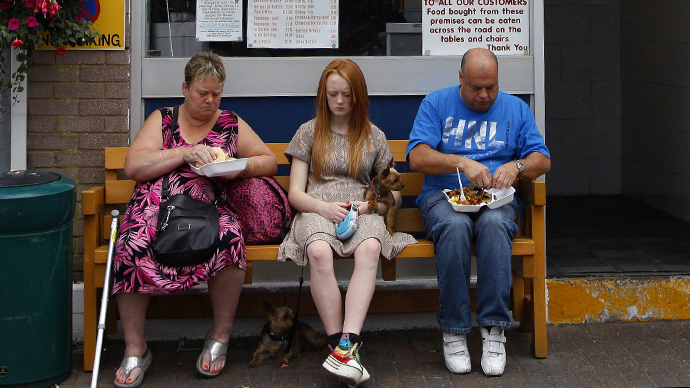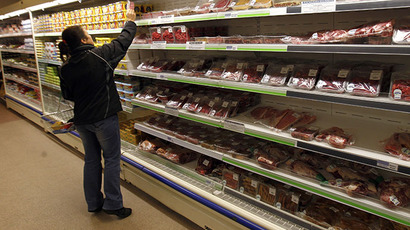London to cut £180m-a-year hardship fund for low-income families

As part of the UK’s latest Welfare Reform Act, low-income families hit with unexpected financial difficulties will lose the government’s £180m-a-year hardship fund.
Instead, the government urges claimants to seek funds through local government-sponsored loans.
Recently released revenue documents by the UK’s Department for Work and Pensions (DWP) estimate that central government will cut funds to support families that have fallen victim to economic hardship as a result of domestic violence or natural disasters.
Instead, low-income families are encouraged to seek assistance from Local Welfare Assistance Scheme in one of 152 local authorities in England that were set up in April.
The DWP confirmed that it will stop funding the current scheme after 2014-15, The Guardian reported, saying that future assistance will be provided by the Department for Communities and Local Government (DCLG).
A spokeswoman for the DCLG, also told the media outlet that from 2015 local welfare is to be funded from local authority general funds.
Local Welfare Assistance Scheme comprises two types of awards.
The Crisis Awards will be handed out to those whose financial situation threatens an immediate and substantial risk to health and safety. This scheme is designed to provide a monetary allowance for the purchase of essential items such as food, energy supply and clothing.
The Community Care Awards are aimed at helping people in need to remain in the community where they reside. This award can help provide access to a wide range of basic household items.
In order to be eligible, persons over the age of 16 have to have resided in a borough for the past 6 months. They must also be legal residents or UK nationals. They must also prove that their resources are not enough to meet their needs.
The redistribution of funding for the poor under the local welfare schemes is controversial, because local councils’ discretion often refuses to allocate cash loans, possible under the social fund.
Instead, local governments focus on providing food vouchers and funding to local food banks, where those who seek financial help are referred to. Other Councils impose strict selection criteria.
Matthew Reed, chief executive of the Children's Society, told the Guardian that the recent development is alarming.
"This is yet another blow to what was once a critical safety net for families facing such unpredictable emergencies and disasters as flooding, or simply running out of money to buy food for their children or feed the electricity meter.”
Reed also stressed that the government should ensure that the local bodies authorized to help the families in need have everything to give that essential aid.
"We urgently need a clear commitment from government to provide local authorities with sustainable funding to support families facing an unexpected financial crisis. Without this, many more families will be forced to turn to food banks, or to use loan sharks or high-cost money lenders," Reed said.














